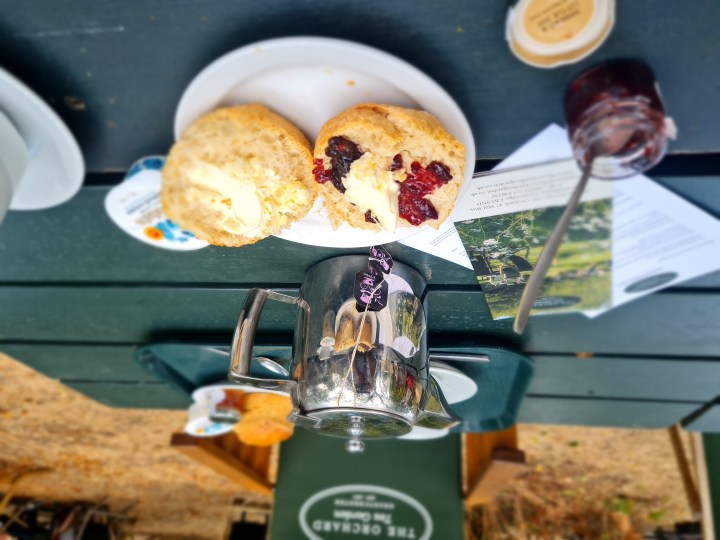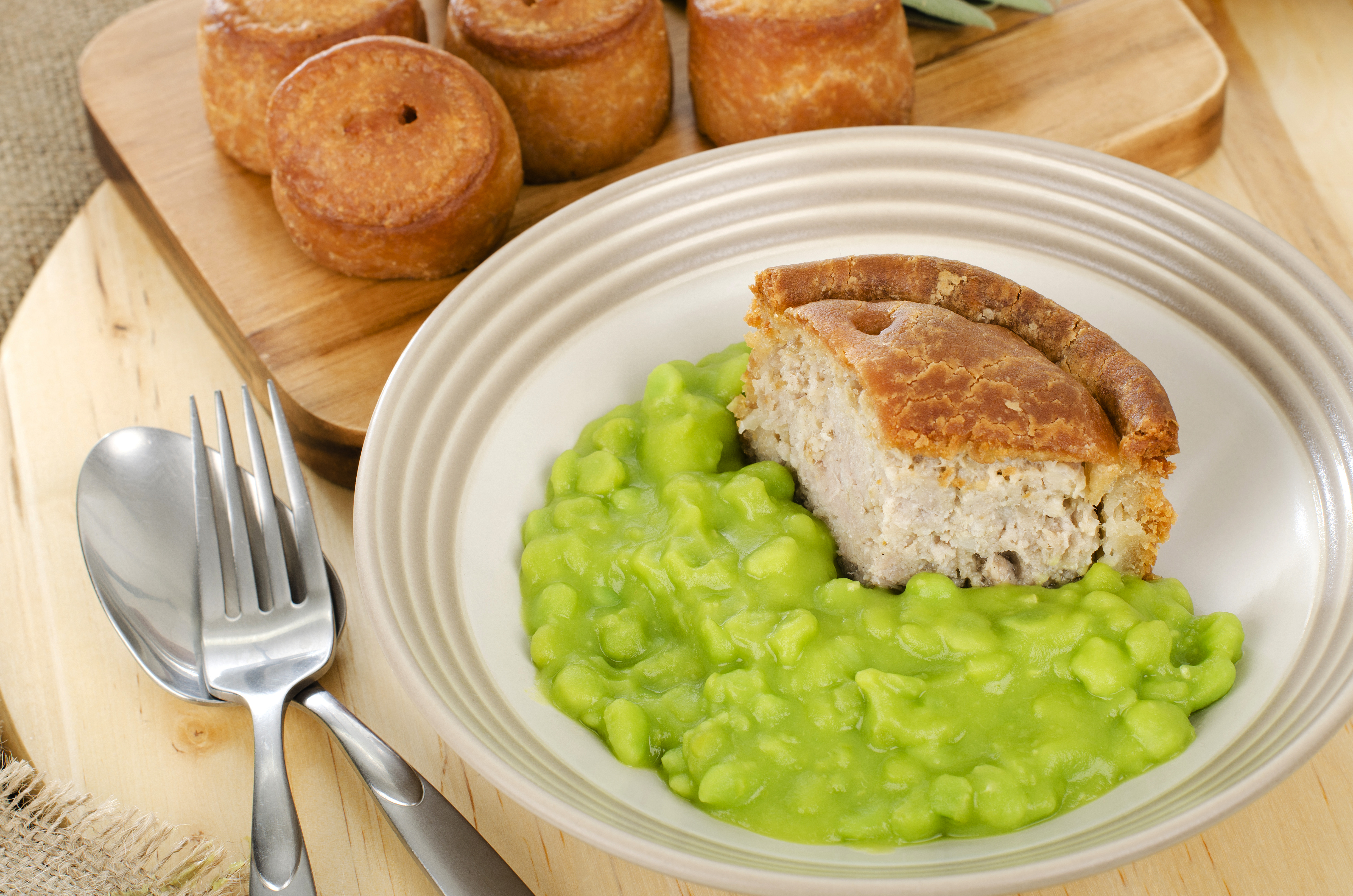FRENCH LETTER
Is there honey still for tea? Oui!

Britain might not be the obvious choice for a gastronomic holiday – even less so if you live in France – but some traditional tastes will always remind me of the Great in Great Britain. The challenge, during a recent hop across the Channel, was to convince my French travelling companions of this simple truth.
If you come from a dry country it is easy to be seduced by green places. England’s many shades of green have always charmed me, ever since I briefly lived and worked in London decades ago, and during numerous subsequent trips I remained under this green spell.
Therefore my first post-Brexit and post-Covid visit, in the company of my French family, was a rather unsettling experience. I had never seen London and the English countryside so dry, so brown, so brittle. The usually lush green lawns of Hyde Park, Regent’s Park and other city parks and squares almost resembled the South African veld. Green Park could have changed its name to Brown Park, which would certainly be more descriptive.
But some things never change, thank heavens, and I could still find comfort in a few favourite food traditions. What made this food journey more challenging was that I wanted to share some of these traditional tastes with my French beloved, our French daughter and her French boyfriend. Sometimes it was easy, especially in the morning. We all love a croissant or a pain au chocolat early in the day, but no amount of French pastry can come close to a full English breakfast.
On this we all agreed. Breakfasts the Brits can do. The full monty consists of back bacon and British sausage with eggs, fried tomato, fried mushroom, baked beans, black pudding, and toasted bread. Sadly the daughter who doesn’t eat red meat couldn’t appreciate the bacon or the sausage, and I declined the baked beans, which I’d always regarded as an abomination on a breakfast plate. And none of us really appreciated the black pudding. Even my husband, who loves French blood sausage, found the British version too rich, too fatty, too whatever. De trop, as they say in French, too much of everything.
Besides, the daughter asked with a puzzled expression, wasn’t pudding supposed to be sweet. That’s what I also thought when I first came to England, was all I could answer.
The next culinary adventure was pub food swallowed down with lukewarm beer or ale from a tap. Fried beer-battered fish and chips counted as a novelty, since the French prefer their frites with poulet (chicken) rather than fish. And anyway, British chips are big and fat and a little floppy, not at all like those thin crispy little French fries. The fish and chips went down well with everyone, although the younger French delegation refused to splash vinegar over their chips and wanted to know why there was no mayonnaise on the table.
They finally asked a waiter for some mayo, which came in a sachet and didn’t taste like real French mayonnaise at all, so they ended up drowning their chips in ketchup. If you can’t beat the Brits, then join the Yanks, seemed to be the reasoning.
Other successful pub lunches, without the youngsters and their dietary restrictions, included bangers and mash, and various kinds of meat pies, which the Brits do so much better than the French. In fact, the French don’t do small round or square meat pies at all, which is why I tend to over-indulge in these tasty pies whenever I’m in South Africa. My all-time favourite British pie, though, is the humble pork pie, eaten cold with a dash of mustard on the side. For some reason this one is not so easy to find in South Africa, or anywhere else, and I was astonished to discover that my French partner had never tasted a good old British pork pie.

Melton Mowbray pork pie and mushy peas. (Photo: iStock)
This was a problem that needed to be addressed immediately. We popped into the nearest Marks & Spencer, where I used to get my weekly pork pie fix while I lived in London, and bought a couple of pork pies to enjoy as part of a picnic on the banks of the Cam River in Cambridge. He liked it, I’m relieved to report, but decided it was just a simplified version of the renowned French pâté en croûte.
Not at all! I protested. The French version of pork in pastry has a long thin shape and is cut in slices like bread, and the pork is mixed with other meats as well as a measure of Cognac or Armagnac, whereas the British pork pie consists of only pork meat, without alcohol, heaven forbid.
Well, the Frenchman teased, that was just another example of perfidious Albion stealing a French idea and promoting it as their own. In a simpler form, bien sûr.
You can’t win when you take a French gourmand across the Channel, I was beginning to suspect.
I decided it was best not to insist that the French delegation try that strange English thing called mushy peas. I don’t like it, personally, but I do know it’s supposed to be a traditional British dish. The family would probably try to convince me it was just a simplified version of the French mashed peas they know as purée de pois cassés.
Fortunately our trip included a few days at the Edinburgh International Festival, and while Scotland is still, precariously, part of the not so United Kingdom, at least one of my favourite British foods remains Scottish. I’m referring to haggis, which the Frenchman and I both loved during a previous stay in Edinburgh – and then hated when we tried to make our own haggis in France.

Haggis in a pub in Edinburgh. (Photo: Marita van der Vyver)
Perhaps the sheep’s pluck (heart, liver and lungs) taste different in France, perhaps the oatmeal was not up to scratch, perhaps we simply didn’t use the right spices. We followed an “authentic Scottish recipe”, and the result was truly inedible. Usually we’re quite good at rescuing a failed dish by transforming it into something else, but the only thing we could do with that foul hump of wannabe haggis was to dump it in the rubbish bin. Not even our cat or the neighbours’ dogs wanted to eat it.
It was the kind of unmitigated culinary disaster that still hurts when you recall it many years later.

Free street entertainment during the Edinburgh International Festival. (Photo: Marita van der Vyver)
Nevertheless, being an eternal optimist (with Scottish blood), I was ready to fall in love with haggis again the moment we arrived in Edinburgh. The Frenchman, still haunted by the spirit of our ghastly home-made haggis, was more wary. The first night I was the only one who ordered haggis, served in the traditional way with tatties and neeps (mashed potatoes and turnips), in a little restaurant close to the Royal Mile. The husband cautiously tasted it from my plate – and his eyes lit up.

The French Connection – father and daughter outside a pub in The Royal Mile. (Photo: Marita van der Vyver)
The next night we both enjoyed a more casual haggis with chips and salad in the cellar of a cosy pub, and over the following days we tried various takeaway haggis pies, mainly because there is so much free entertainment in the streets during the Festival that you don’t want to miss the action while hiding away in restaurants or pubs.

Takeaway haggis pies. (Photo: Marita van der Vyver)
So we came, we tasted, and we were conquered once again by the humble haggis, of whose goodnesse it is in vaine to boast, because there is hardly to be found a man that doth not affect them, as was stated in 1615 in a book titled The English Huswife. Maybe my Scottish ancestry influenced my judgement, but even the Frenchman finally agreed with Robert Burns’ illustrious Address to a Haggis, still proudly recited on Burns Night Suppers all over the world: Fair fa’ your honest, sonsie face,/ Great Chieftain o’ the Puddin-race!

Hard work to feed the Edinburgh festival crowds – an exhausted chef taking a break outside a restaurant. (Photo: Marita van der Vyver)
Not that he understands the actual words, which even to me sound mostly like gibberish, but we do get the sentiment behind the words.
The younger French delegation, on the other hand, refused to even taste it. The daughter’s refusal we could understand. If she doesn’t want to eat the meat of dead animals, there’s no way she’s going to try the insides of dead animals. The boyfriend’s reaction reminded me of a later part of Burns’ poem: Is there that o’re his French ragout…/ Looks down wi’ sneering, scornfu’ view/ On sic a dinner?
Yes, Mister Burns, apparently there is.
But there is at least one traditional British taste that saved the Kingdom’s honour. Tea with scones and clotted cream might be a treat anywhere in England, but to enjoy it in The Orchard Tea Garden in Grantchester, just outside Cambridge, is an experience that can convince even young French republicans to start singing God Save the Queen. Or the King, as they would now have to learn to sing.
The Frenchman and I have visited this beautiful old orchard several times in various seasons. The daughter was taken there more than once in her childhood, and knows it is next to The Old Vicarage, which Rupert Brooke glorified in a poem full of home-sick yearning written in Berlin in 1912. If it weren’t for The Orchard’s scones, she might not even have heard of Rupert Brooke, or of the Grantchester Group of literary and intellectual figures who would meet here under the fruit trees.
By now she knew quite a few of these names – Virginia Woolf, EM Foster, John Maynard Keynes, Bertrand Russel, Ludwig Wittgenstein – and could rattle them off to impress the French boyfriend, whose first visit this was. And even though the orchard was not as overwhelmingly green as usual, the boyfriend was enchanted.
It is hard not to be charmed, lounging in comfortable canvas chairs, licking clotted cream from scrumptious scones, sipping tea while reading or sketching, hearing the cool lapse of hours pass,/ Until the centuries blend and blur/ In Grantchester, in Grantchester… So this is what Rupert Brooke meant, you inevitably end up thinking.
We all agreed that some traditional things the Brits do extraordinarily well, and tea with scones is one of those things. Brooke’s poem ends with the enduring question: Stands the Church clock at ten to three? And is there honey still for tea? My French family’s answer would be a resounding: Oui! DM/TGIFood
Follow Marita van der Vyver on Instagram Faking French.
The author supports Ladles of Love, an NGO feeding the hungry and providing healthy food in Cape Town. You can support them here Ladles of Love.



Comments - Please login in order to comment.